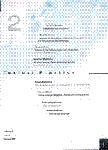版权所有:内蒙古大学图书馆 技术提供:维普资讯• 智图
内蒙古自治区呼和浩特市赛罕区大学西街235号 邮编: 010021

作者机构:Univ Exeter Exeter EX4 4QJ Devon England
出 版 物:《TEXTUAL PRACTICE》 (校勘实践)
年 卷 期:2013年第27卷第7期
页 面:1149-1175页
学科分类:0502[文学-外国语言文学] 05[文学] 0503[文学-新闻传播学]
主 题:Jacques Lacan G W F Hegel phenomenology time logic
摘 要:The progression of Consciousness in Hegel s Phenomenology is usually understood as either a logical (McTaggart) or temporal (Marx) succession. Beginning in the twentieth century, phenomenological readings (Merleau-Ponty) have sought to reconcile these two competing data. Lacan s Logical Time and the Assertion of Anticipated Certainty: A New Sophism may be read as a response to Hegel s dialectic in this tradition. It describes in allegorical form the progression of Consciousness through three distinct rational phases that correspond to the most basic phases of Hegel s dialectic. Crucially, this succession depends on strictly irrational elements. Doubt, and its manifestation in the momentary hesitation of the subject, proves instrumental in the emergence of identity and takes on a positive rational value. Lacan s concept of Logical Time synthesizes the equally important imperatives of Logic and Time that alone permit the emergence of a fully adaptive reason, and the higher forms of Consciousness that are predicated upon it.